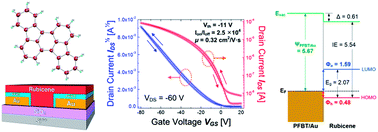If cells are the building blocks of life, an analogy can be made that transistors are the building blocks of the digital world. They could be credited as the discovery of the 20th century. One of the IEEE milestones, transistors can be counted as biggest step in technology. For the first 20 years after the discovery of transistors, Germanium based transistors were used all over the globe replacing vacuum tube based gadgets. Germanium transistors certainly helped kick off the table size computer age, but silicon based transistors revolutionized the design of it and produced an entire industry in California namely silicon valley. But researchers would not be termed researchers if they stopped inventing and innovating making this world a better place to live. Inventions of materials like graphene, carobon nanotubes and fullerens are stretching the boundaries and making a dent in bringing a new generation of transistors which would shrink the size of electronic gadgets even further with landmark speed.
Rubicene: a molecular fragment of C70 for use in organic field-effect transistors
Hyunbok Lee, Yue Zhang, Lei Zhang, Timothy Mirabito, Edmund K. Burnett, Stefan Trahan, Ali Reza Mohebbi, Stefan C. B. Mannsfield, Fred Wudl and Alejandro L. Briseno
J. Mater. Chem. C, 2014, Advanced Article. DOI:10.1039/C3TC32117G
Padmanabh Joshi is a guest web writer for the Journal of Materials Chemistry blog. He currently works at the Department of Chemistry, University of Cincinnati.
To keep up-to-date with all the latest research, sign-up to our RSS feed or Table of contents alert.











